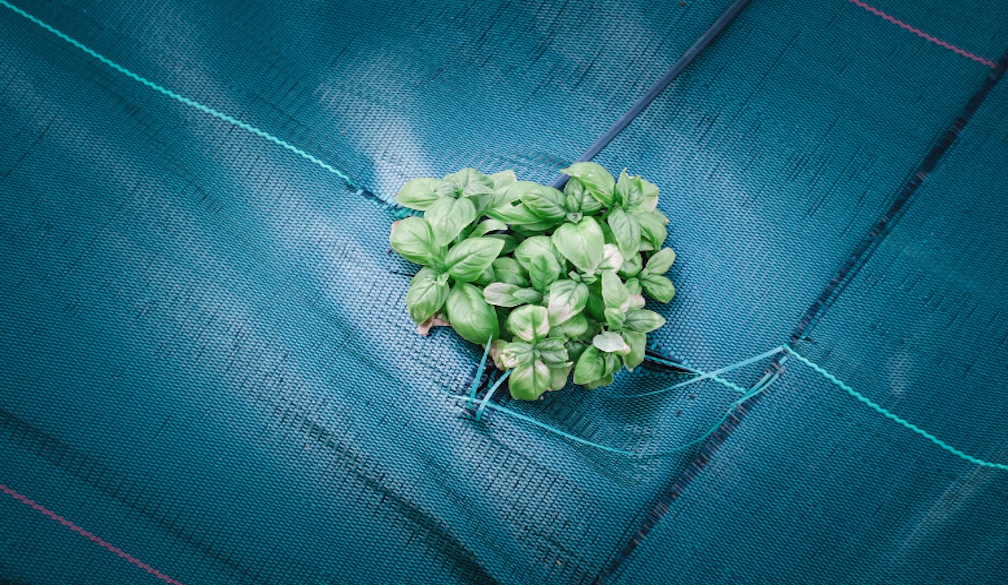Eco-Friendly Fabrics: The Future of Sustainable Fashion

Eco-friendly fabrics are all the rage right now as the sustainable fashion market has exploded in Australia in recent years. Eco-friendly fabrics have not only been proven to be a useful tool in tackling the pressing concerns of climate change, but also as a viable opportunity for the future development and growth of sustainable fashion.
Reducing waste and environmental harm while maintaining minimal costs has always been an ideal goal for the fashion industry. Yet materials such as cotton, nylon and polyester, which continues to dominate the current fashion industry, have created detrimental effects on the environment and human health. Eco-friendly fabrics however provide a sustainable alternative.
Names of sustainable eco-friendly fabrics have floated around the media in recent years, and you may even perhaps have a garment that is made out of an eco-friendly fabric. There is an abundance of materials that can be touted as a sustainable or eco-friendly fabric. But it is these three fabrics that truly live up to their name of sustainability: organic hemp, bamboo lyocell, and a new and potentially revolutionising material, fungi fashion.
Organic Hemp
You may have already heard about industrial hemp in the media. Apart from being known as a psychoactive drug, the Cannabis sativa plant is also recognised as being a viable source for textile fibres.
When organic hemp is turned into fabric, its texture is soft and similar to cotton. It is also resistant to both shrinkage and piling. But unlike cotton, which demands substantial environmental sacrifice due to its water-intensive and pesticide-heavy cultivation, hemp farming is considerably more eco-friendly.
Hemp plants also produce greater yields with less land requirements than cotton due to their small and slender shape. produces greater yields with less land requirements than cotton. Its strong phytoremediation properties, which refers to the ability for plants to remove soil contaminants and toxins, means it can be repeatedly grown in the same area, during the same harvest year, without any depletion of soil quality.
Placing these factors together, hemp is also carbon-neutral, which assists in the reduction of carbon footprints. Hemp has offered itself as a warrior for sustainable fashion, offering an attractive alternative for eco-conscious consumers, and also as a material that is growing in popularity across mainstream apparel making.
Bamboo Lyocell
Bamboo is a natural, renewable, and eco-friendly plant that grows fast and is highly sustainable. Growing it requires no fertilisers or pesticides and very little labour and water.
Many of the marketing of bamboo fabrics that you may have perhaps seen before can still, however, be deceptive. Bamboo is obviously sustainable, but not every bamboo fabric is actually sustainable. Bamboo rayon and viscose for example have had their fair share of controversies about using harmful chemicals to extract fibres. Comparatively, lyocell is the most eco-friendly option out of both.
Lyocell is a semi-synthetic rayon fibre extracted from bamboo plants. Instead of using toxic chemicals that destroy the environment, lyocell uses spinning (wet, dry or electro) with non-toxic amine oxide solvent for fabrication. Bamboo lyocell fabrics have a light, smooth and soft texture that resembles high-quality silk. In terms of durability, bamboo lyocell fabrics are moisture-absorbing and are resistant to moths and mould.
These fabrics are biodegradable because of their cellulosic fibres and can be recycled and reused for future production. Bamboo has become a popular go-to for the environmentally conscious, but the level of sustainability still varies from fabric to fabric – it is clear however that lyocell wins in terms of actual eco-friendliness.
Fungi Fashion
For some, fungi fashion may sound strange, but it is a material that is in growing momentum for its sustainable appeal.
Fungi fashion is a site where science and fashion converge. The fabric is created through a process called ‘bio-fabrication’, which essentially means growing materials from small organisms like fungi. Mycelium, a word that everyone across clothing and fashion circles is talking about right now, is the fibre that forms as the root of the fungus and to which is used to create the fabric.
It is not merely the indistinguishable leather texture that mycelium fungi fabric bears, but also its fundamentally eco-friendly processes of production that forms its selling point. Traditional leather requires livestock that take years to raise, expending significant amounts of water and food, and as well as producing methane gas emissions. In comparison, fungi take only weeks to grow, requires very little water and is carbon-negative.
As a plant-based leather, mycelium is also biodegradable and compostable, which can alleviate strains on landfills and reduce waste. Conversely, many traditional leathers are not biodegradable and have become a major problem for the overload of scrap waste.
Fungi is an exciting innovation and the road that fashion may undertake – towards a sustainable future.
As there are more and more calls for a transition to a climate-friendly model, sustainability and eco-friendliness will remain as a key topic in the fashion industry for years to come. This guide provides just some of the many fabrics and materials that you will see increasingly more often across shops and stores in the near future.







